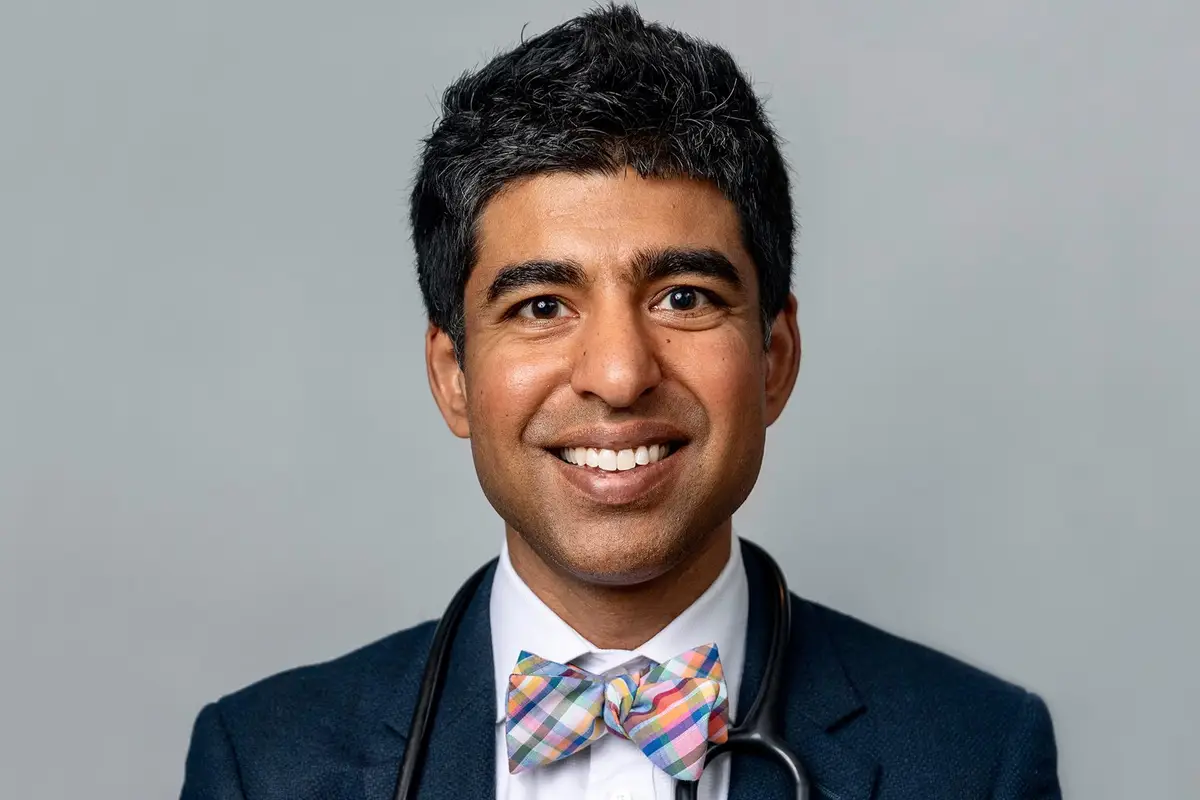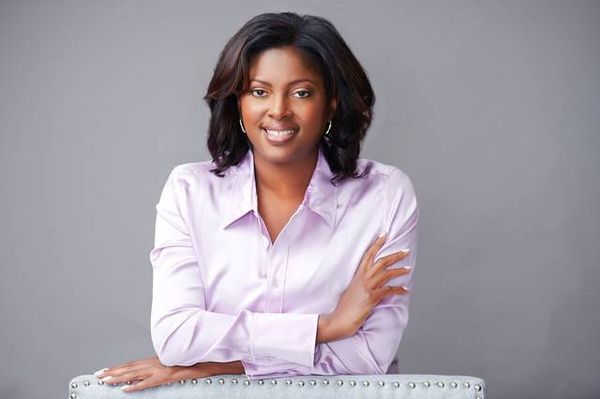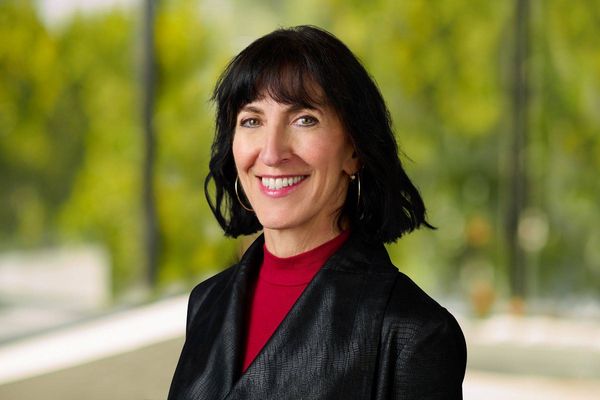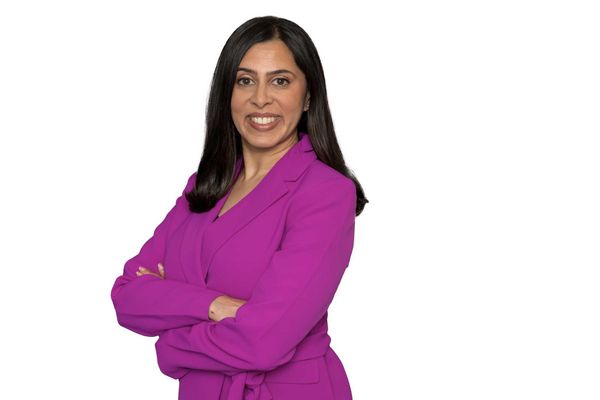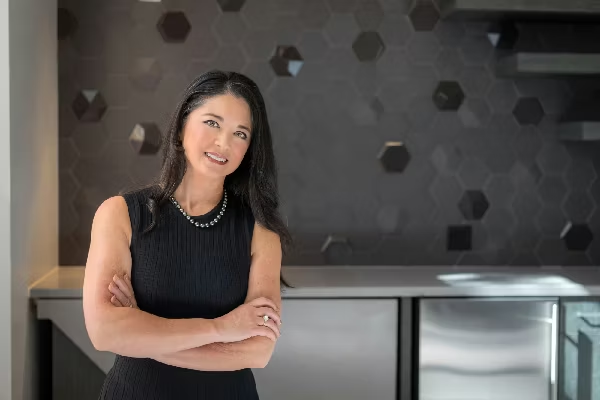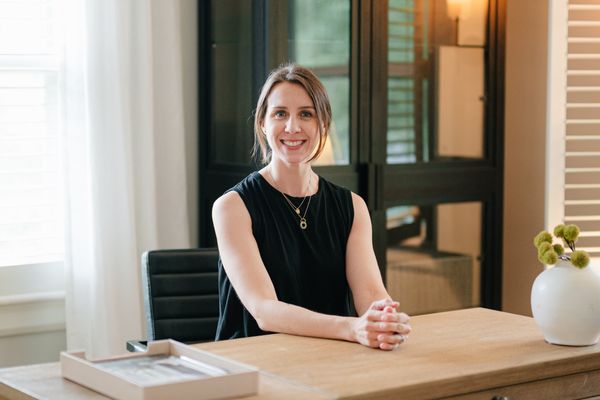Neel Shah, M.D., is chief medical officer of Maven Clinic, the world's largest virtual clinic for women's and family health, assistant professor of obstetrics, gynecology and reproductive biology at Harvard Medical School and the founder of Costs of Care.
Shah is featured in “The Color of Care,” an original documentary from Oprah Winfrey’s Harpo productions and the Smithsonian Channel that chronicles how people of color suffer from systemically substandard healthcare in the U.S. and how Covid-19 exposed the tragic consequences of these inequities. He recently spoke with HealthyWomen’s editor-in-chief Jaimie Seaton.
This interview has been edited for clarity and length.
HealthyWomen: For readers who have not seen the documentary, “The Color of Care,” can you give us a basic description of what it covers?
Neel Shah: The Covid-19 pandemic basically took every inequity in our society and threw it into a pressure cooker, and the documentary really unflinchingly shows what happened when so much systemic inequity, and particularly racial inequity and racism, was brought to the surface in our healthcare system. Anybody with eyeballs could see who is being impacted most. The people who were coming in to the hospitals, the most infected, looked different from the people who had the opportunity to work from home and Zoom all day.
HealthyWomen: There are some pretty staggering statistics in the film: Black women are less likely to contract breast cancer but 40% more likely to die from it, and they’re three to four times more likely to die in childbirth. Black infants are two times more likely to die, when the rate was lower — 1.6 times — during slavery. Is this related to structural racism? Can you explain what it is, how pervasive it is, and how one’s ZIP code is the biggest indicator of health outcomes?
Neel Shah: Where people in the United States live is a large determinant of what's close to them and that determines basically their opportunity to thrive and be healthy. But in almost every American city, there is a history of redlining, which is a policy by which it was basically harder to own a home and have access to infrastructure in Black neighborhoods compared to white neighborhoods. And so everything from healthcare to educational attainment suffers in certain parts of almost every city.
And that's not a coincidence. Historically, these have been Black neighborhoods and they just have less investment and, therefore, less infrastructure. So hospitals tend to have less resources and therefore struggle more to take good care of people. The other way that it operates, honestly, to make it very concrete: I'm an obstetrician in Boston, and one major way that redlining works is that it's actually harder to get from place to place through public transportation. I've got patients who have to take three city buses in order to get to my clinic, whereas if you live in a wealthy neighborhood, you may have a subway that takes you straight there.
HealthyWomen: That's sobering. You say in the film that the institution of slavery required putting a value on human bodies and that was done by physicians. Can you talk a bit about how enslaved people, particularly women, were used by physicians and how that relates to racial inequality in healthcare today?
Neel Shah: There's a sordid history very specifically of physicians experimenting with medical techniques and surgical techniques, particularly in gynecology, on enslaved women. There are a lot of perceptions that grew up in the institution of American medicine alongside slavery, that justified slavery as an institution. For example, the idea that Black people experience pain differently and experience pain less. I think that is a concept that is straight out of slavery and has persisted to the present day, to the degree that there is a study that showed that even present-day medical students literally believed that Black people have thicker skin, not figuratively, literally.
And then there's a whole bunch of other ways too, where because of the fact that, for hundreds of years now, we've treated Black people as biologically different, we have baked that into the way that we provide care in 2022. Everything from measures of how kidneys filter toxins to the likelihood of needing a C-section are based on calculators where Black people have different thresholds than white people, and those differences basically gatekeep care from people who are Black.
HealthyWomen: You actually went into my next question, which is, “Can you talk a little bit about how biology was created around racism and the idea that Black people experience pain differently?” So can you add to that and discuss how that affects healthcare today.
Neel Shah: Maybe one stark way to put it is that in every public health study, there is a table that is called Table 1, that breaks down the demographics of the people you're studying. There's always a row that says “race,” and it breaks things down by race — as it should, because you can't fix what you are not seeing and you can't see what you're not measuring, and we should be looking at race as a variable. The problem is, the rest of the paper, in almost all cases, at least historically, has not been precise about what they're attributing to that category. And in many cases, the assumption is it's been biology when, in fact, it's racism.
One example is this calculator that calculates the odds of needing a C-section. For most of the last 15 years, if somebody came into your office and they’d had a C-section in the past and wanted to know their odds of success in having a normal vaginal delivery the second time, you would put their age, their body mass index and their race into a computer and it would spit out a number. And if you put in that they were Black, it would drop the odds considerably, and nobody ever questioned that. But the reason is that people who are Black are less likely to get support and so they're less likely to have normal vaginal deliveries. But by putting it into the calculator, you're just reinforcing racism, as opposed to being like, "Wait a minute, why is this happening?" If anything, maybe they need more support.
HealthyWomen: So the number is putting forth the idea that somehow there's a problem because these women are Black without taking into account prenatal care, postnatal care, and all of that, is that correct?
Neel Shah: That's a much better way of putting it. Yeah, to the degree that there's a very fine line in medicine between what is celebrated as clinical intuition, and what's basically racism. Every single clinical vignette or case study that you read as a medical student tells you the race of the patient but doesn't explain what's going on any further than that, like a 23-year-old pregnant woman who's Black comes to see you and you're immediately meant to think she probably has preeclampsia. That's the right answer in multiple-choice tests. And you never think, Why? The assumption is that it's biological, as opposed to it being because of racism.
HealthyWomen: That's just staggering to me that that's being done still in medical schools. What you're saying is there's no context, right?
Neel Shah: There's no context, or there isn't the right context. In medical school, historically, everything has been about biology. And what Covid-19 did was show the ways that biology and sociology interact. At the beginning of the pandemic, it wasn't entirely clear how much more biologically affected pregnant people were by Covid-19. But they were so much more affected because prenatal care was canceled. That was important context. And if you were a Black person in certain parts of Boston or New York, you were already feeling overpoliced, and then you would come to the hospital, and you'd see actual police blocking you from bringing visitors into the hospital at the beginning, and that was all part of what was going on. That’s the problem, nobody ever discusses the social context, and nobody ever historically has used the word “racism.” They've always used euphemisms.
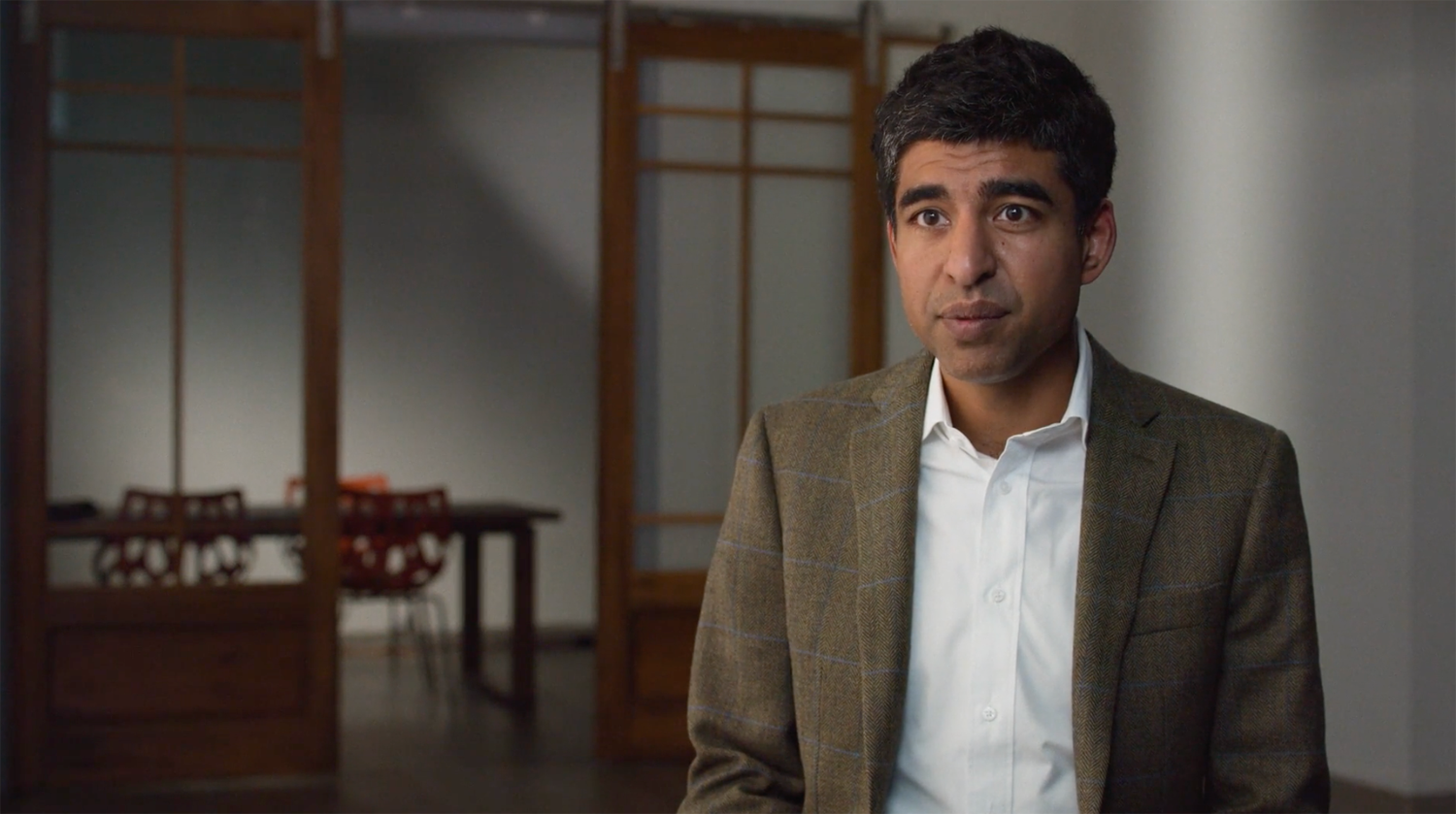
HealthyWomen: There's evidence in the documentary showing that many white healthcare providers don't explain complex procedures and options to Black patients. Can you explain this and suggest how a Black patient can advocate for herself?
Neel Shah: I think it's important to remember that a bad system will beat a good person every time. So we have a system that's producing racial inequity. It's designed that way and we have to think about the system for delivering care alongside the individuals. It's very easy to blame individuals. It's much harder to ask, "What's actually happening about the way care is being delivered?" Part of the challenge is that all human beings carry implicit bias and assumptions with them that may or may not be right.
There is a big opportunity to retrain everybody in understanding how to meet people where they are and make sure that people are being affirmed and really listened to.
There are two scenarios. One is that it feels like the doctor or the nurse is taking shortcuts and not answering questions. There's another scenario where you're trying to tell them something, and you don't feel like you're being heard. And one thing that I always tell my own patients is that in obstetrics, our job is to reassure people, because most of what we're doing is telling people that pregnancy is uncomfortable, but that's actually normal.
That happens a lot. But if you were to say to your doctor or your nurse, “I know this might seem normal to you, but it doesn't feel normal to me and I'm scared,” or something to that effect, I think that would lead to people pausing. Part of what I want to convey is that doctors and nurses have great intent, and the opportunity is to get them to pause.
HealthyWomen: For people who haven't watched the film, there is a part that talks about how white healthcare providers, for instance, won't suggest a liver transplant because they assume that Black patients won't do the proper care for follow-up, or that a Black patient won't understand the complexity of a certain treatment plan. Can you talk about that a little bit and how that works?
Neel Shah: There's evidence that it occurs. Part of the opportunity is to take that step back and say, very few individual doctors think that they're acting with bias. Most of us are taught that racism is evil, so it's hard to recognize it in ourselves. And also, when you look at almost every healthcare outcome, there are these enormous disparities that are not well explained by biology. It often has to do with the structural context in which people live and the opportunities they have access to, and it equally has to do with differences in the bedside level of care that they're receiving, the information that's being conveyed, how well they're being listened to.
And I'm not sure what else to say, that's just the reality. Part of what I think is powerful about the film or even this interview is that it's only been normative to say that racism exists in healthcare for like two seconds.
HealthyWomen: Oh, that's interesting. We cover racial disparities a lot.
Neel Shah: I appreciate that. And we've talked about racial disparities for a long time, but to say that there's pervasive racism in American healthcare has been a relatively new thing. And I think there's a lot of people who are still very defensive about that. But every system is perfectly designed to get the results that it gets. And so the only way to progress is self-examination.
HealthyWomen: In the film, you talked about how all the images of people in medical textbooks are white. Can you talk a little bit about the impact or the effect of this on the care for Black women?
Neel Shah: One example that, as a surgeon, is top of mind for me, is that when you have a brand new doctor in the hospital, as occurs every July, they are usually an intern and their team is in the operating room, and you rely on them to stay with the post-surgical patients and tell you whether or not they're sick. When you're a new doctor, you don't necessarily have to know everything, the only thing that you need to know, to be very good at, is reporting when people are truly sick and need more attention, and how do you do that?
You basically have to look at somebody and form an assessment. And one way that people can be very sick after having a surgery is if they're bleeding, and if they're bleeding, they might be anemic, and if they're anemic, they might look pale, and that's what you're used to thinking. But if they're melanated, they're not going to look pale in the same way, so you might not respond as quickly. Everything about your training is based on people who have white skin. That applies to rashes, it applies to many things. When you only see white people represented and centered in everything that you're learning about care, that's what you're really indexed towards, and you may ignore things that present differently — even things as literal as changes in skin tone.
HealthyWomen: That is really powerful, so thank you for sharing it. One thing that struck me in the film was the dual problem of distrust in communities of color of the healthcare system, and the substandard care that people of color get when they do seek care. Can you talk about this and how the healthcare system can address the dual problem?
Neel Shah: Thank you for that opportunity because I feel very strongly about this. It's not the job of the people that we serve to be more trusting; it's the job of the healthcare system to be more trustworthy. And that's not just a virtue. When people hear the word trustworthiness, because we're used to, again, thinking about it in moralistic terms only, it's like a virtue that dichotomizes the world — either you're trustworthy or not. But actually, trustworthiness is an output of a system that's either working or not working for people.
If people are not trusting us, something is not working, and I think you need at least three things to be trustworthy that we're not doing today. You have to be competent in taking care of people. That means you have to produce equitable outcomes. We're not doing that but that's also not sufficient. You have to be reliable and show up for people when they expect you to. That fundamentally broke during the pandemic. The entire healthcare system collapsed. People could not get through on the phone, they could not book appointments. All of that undermined the trustworthiness of the system.
And then you have to be able to affirm people. You have to be able to ensure that they feel seen and heard, and we're very bad at that. Historically, we've treated people's experience of care as a secondary luxury that you get to after you make them safe. That's been the interpretation of “First, do no harm.” And the more that we learn about racism and how it operates in healthcare, especially for Black women and maternal mortality, it's like we've gotten the entire thing backwards. People's experience is not a secondary luxury. It's actually the primary thing that we solve for. The way that you make people safe is by attending to their lived-in body experience.
HealthyWomen: Can you explain that concept of the experience as a secondary luxury?
Neel Shah: First do no harm means, first we make you safe and then we worry about your experience. So we'll subject you to anything. It's like wearing a very undignified hospital johnny. But you're in a hospital, so we're keeping you safe. And then anything having to do with somebody's experience of care is treated as a luxury. It's a nice to have, not a must have. But what we're learning is that, actually, the way that you make people safe is by attending to their experience because, if you do that, you will actually see and hear what they're telling you.
I can't even tell you how many stories there are of people expressing concern and just not being heard. I mean, there's the famous Serena Williams example, where she's the world's greatest athlete and has a pulmonary embolism and knows it, and she’s telling her nurse and is kind of getting blown off.
HealthyWomen: That was an amazing story.
Neel Shah: I think 95% of solving a really hard problem is defining it correctly, and a big part of the power of the film is that it's being named. The problem is not disparities, not coincidental differences in outcome, not biology — it's racism. That's step one. It's like a stake in the ground, being totally clear-eyed about that.
The second is that the film is hard to watch. I think that the producers and Yance [Ford], the director, and everybody involved was intentional about really making you sit with your discomfort. I think there are a lot of people who are skeptical about the degree to which racism operates in American healthcare. I also think it's impossible to watch the film and not come away with a different point of view, impossible. I was always taught that discomfort is a necessary part of learning, and I think that's part of the film's power. And then once you've got the right problem definition, then you can really galvanize people to action.
HealthyWomen: What about the average person reading this, who is not a person of color. What can we do?
Neel Shah: I think allyship counts for a lot. I think there's a lot of white people, specifically, who, again, are very well-intentioned and want to be part of the solution and also aren't sure what their role is because they're afraid of saying the wrong thing. I think as a society, we need to all have a much better discourse than we're having today, that's much less about canceling people for saying the wrong thing. But I think that we should be welcoming allyship. I say that as a person of color. I think there's a lot of power in allyship.
I say this as a person who's melanated but also not a Black woman, so I think that I also have to think about how to be a good ally for Black women specifically, and they define whether I'm a good ally or not. So it involves listening to them, like everything else. And I also think we would all benefit from a little bit of grace as we try to figure out how to come together on this.
HealthyWomen: Is there anything that I haven't asked you in relation to the film that you'd like to add?
Neel Shah: It's a really powerful film, and I hope a lot of people watch it. That's all.
The “Color of Care” is available for viewing on YouTube until May 31, 2022.

